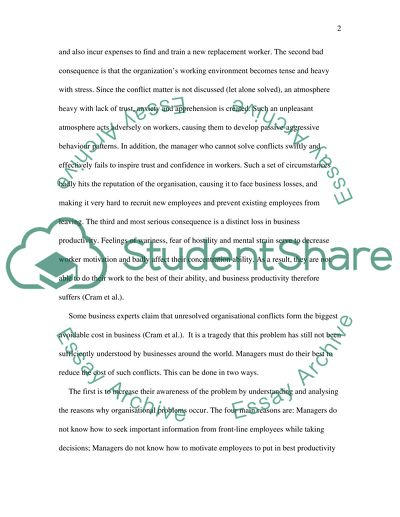Cite this document
(“Should managers try to eliminate or to encourage the expression of Essay”, n.d.)
Should managers try to eliminate or to encourage the expression of Essay. Retrieved from https://studentshare.org/miscellaneous/1539597-should-managers-try-to-eliminate-or-to-encourage-the-expression-of-organisational-conflict-explore-your-reasons
Should managers try to eliminate or to encourage the expression of Essay. Retrieved from https://studentshare.org/miscellaneous/1539597-should-managers-try-to-eliminate-or-to-encourage-the-expression-of-organisational-conflict-explore-your-reasons
(Should Managers Try to Eliminate or to Encourage the Expression of Essay)
Should Managers Try to Eliminate or to Encourage the Expression of Essay. https://studentshare.org/miscellaneous/1539597-should-managers-try-to-eliminate-or-to-encourage-the-expression-of-organisational-conflict-explore-your-reasons.
Should Managers Try to Eliminate or to Encourage the Expression of Essay. https://studentshare.org/miscellaneous/1539597-should-managers-try-to-eliminate-or-to-encourage-the-expression-of-organisational-conflict-explore-your-reasons.
“Should Managers Try to Eliminate or to Encourage the Expression of Essay”, n.d. https://studentshare.org/miscellaneous/1539597-should-managers-try-to-eliminate-or-to-encourage-the-expression-of-organisational-conflict-explore-your-reasons.


